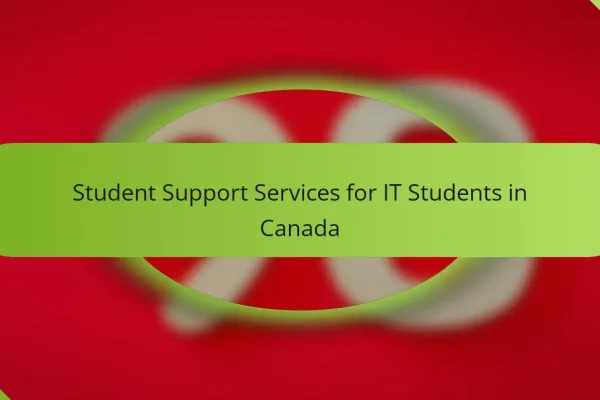
Student Support Services for IT Students in Canada
Student support services for IT students in Canada encompass a range of resources designed to promote academic success and personal well-being. These services include academic advising for course selection and career planning, tutoring for specific IT subjects, and mental health resources for stress management. Additionally, institutions provide workshops on study skills and time management, alongside…








